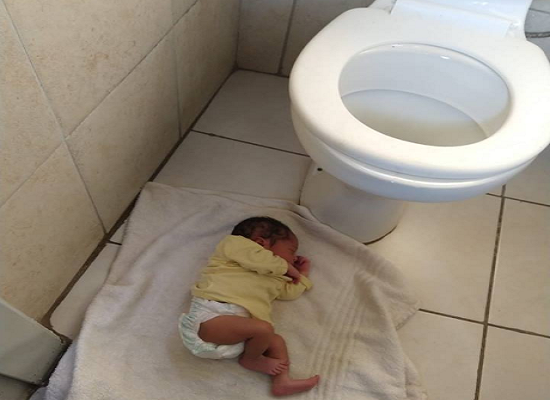Earlier this week, the Gowon Estate Police Division in Lagos said they rescued an abandoned baby. The police said that the baby, barely two days old, was dumped in a sewage tank and was found in the morning hours, exposed and crying.
In June, an abandoned baby was found under a parked bus somewhere in Mile 12/Ketu axis of the same Lagos State. The baby was said to have been rescued with the help of a resident who had found the baby on his way to work.
Cases like this are no longer strange in Nigerians; no month passes without news of a child abandoned in a part of the country.
But why is this rampant?
No longer joy givers?
There are many reasons parents abandon their children; one such reason is when the parent assumes the child to be a witch.
This has primarily been reported in southern Nigeria, where more than 5,000 children, some of whom are as young as 5, are said to have been abandoned and thrown out on the street due to witchcraft accusations.
Victims of these are usually children with either special abilities or special needs.
Another reason for child abandonment is poverty. Nigeria, Africa’s largest democracy, has faced two inflations within the last decade, with an attendant rise in the cost of goods, which is way above what most citizens can afford. The country is also home to about 133 million people who suffer from multi-dimensional poverty.
So, some parents who cannot afford the cost of another baby are forced to abandon them and save themselves from the trauma of watching the baby die of hunger.
Also, Nigeria has a shallow family planning culture and an even lower sexual education culture. Conversations about sex happen in hush tones. Teenagers, with no means to fend for themselves and ignorant about their bodies, become pregnant they tend to abandon the baby after delivery.
Laws against child abandonment
Making a case for stiffer punishment for child abandonment on the floor of the Nigerian House of Representatives, Sergius Ogun, the sponsor of the child rights act amendment bill, said there was a need to hold parents accountable for abandoning their children to serve as a deterrent to others.
The Nigerian Child Act stipulates that no child should be subjected to torture or other cruel, inhuman, or degrading treatment or punishment. This section is also backed up by section 34 of the 1999 Nigerian constitution, which says that every individual is entitled to respect and dignity of their person.
Also, Section 16 of the Violence Against Persons Act or VAPP Act say it is a criminal offence to abandon children or leave them without a means of sustenance.
The act went further to say that any offender that violates the law, upon conviction, is liable to imprisonment not exceeding three years or a fine not exceeding N500,000.
More from government
To reduce the spate of child abandonment, the government needs to strengthen the law and enforce it more effectively. The Violence Against Persons (Prohibition) Act 2015 already makes it a criminal offence to abandon children, but enforcement is weak.
Increasing the penalties for child abandonment, providing more training for law enforcement officials on dealing with cases of child abandonment, and setting up a dedicated unit to investigate and prosecute cases of child abandonment could help solve the problem.
There also needs to be more support for parents and families, such as financial assistance, childcare services, and access to education and healthcare. This would help to reduce the number of parents who feel they have no choice but to abandon their children.
There is also a need to raise awareness of child abandonment, as many in the country are unaware that child abandonment is a crime. The government can raise awareness of the issue through public education campaigns, school programs, and religious sermons. This would help to change the social norms around child abandonment and make it less likely that people will abandon their children.
Providing more safe havens for abandoned children is necessary too. Safe havens are places where people can anonymously drop off abandoned children without fear of prosecution. The government can provide more safe havens for abandoned children, making it easier for people to give up their children without risking them.






